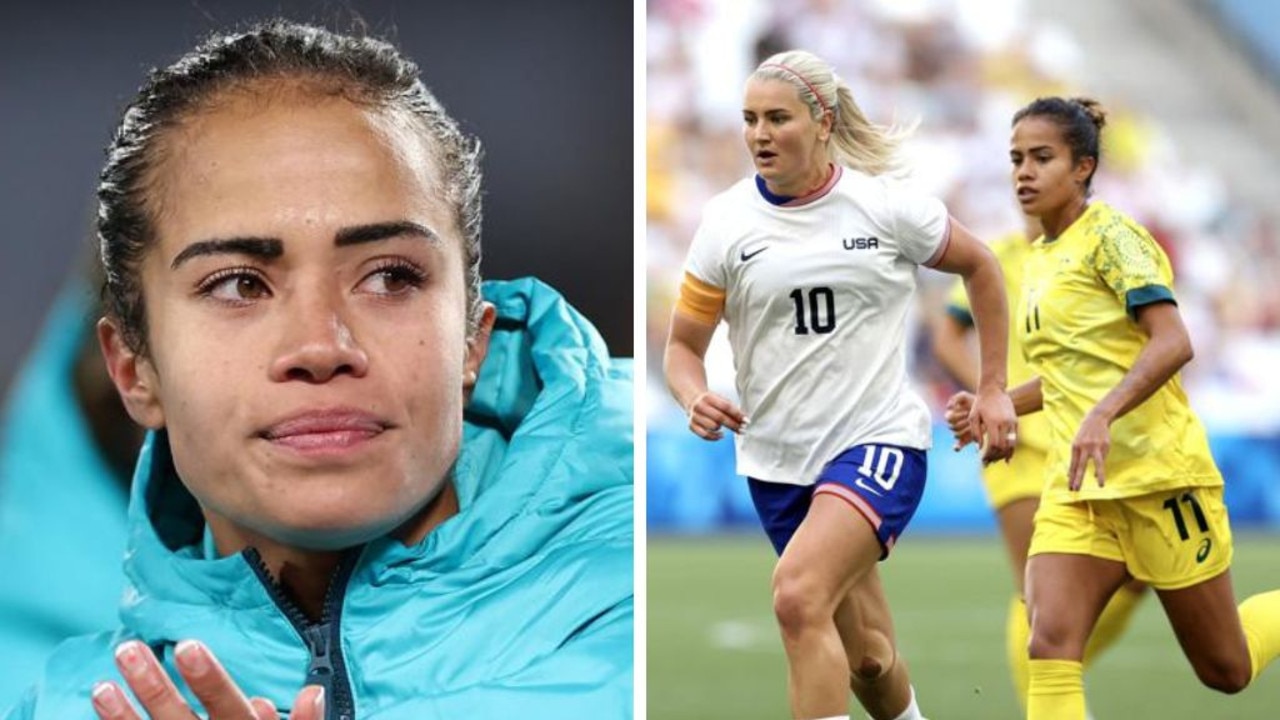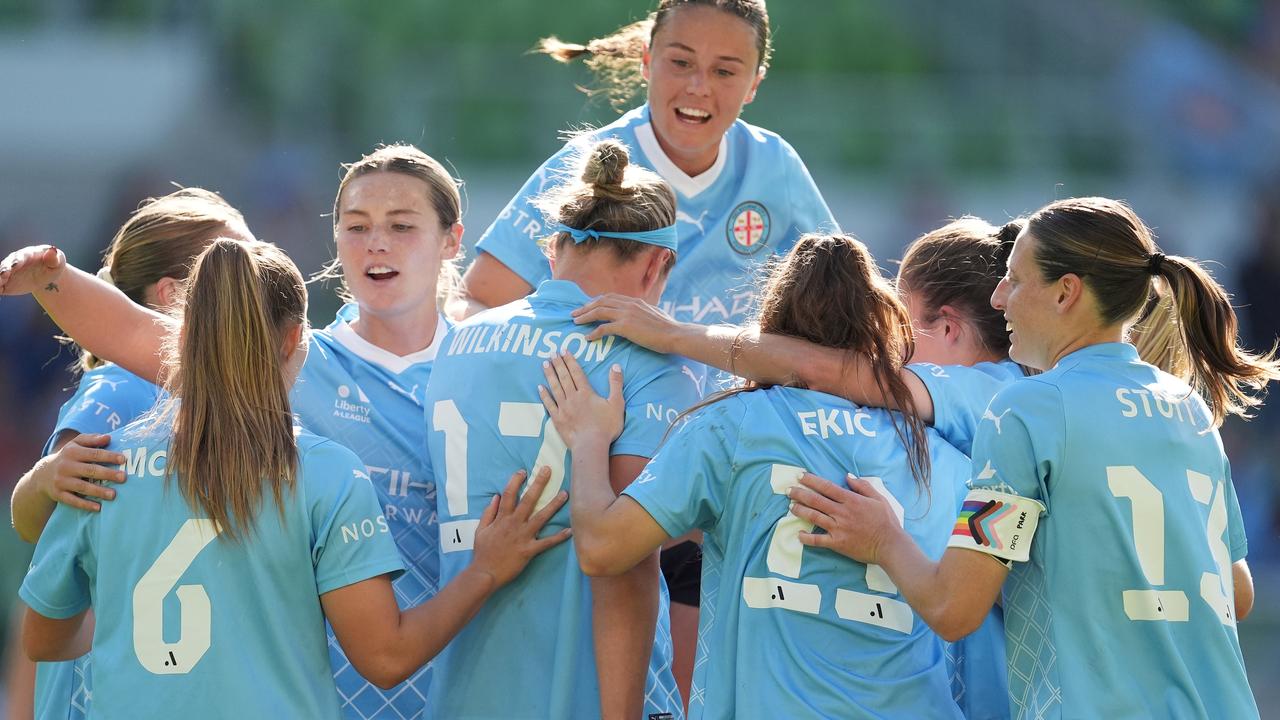Asian Cup 2015: North Korea’s progress in Australia sure to be kept quiet back home
IF North Korea falls to Saudi Arabia in Melbourne on Wednesday, but nobody back home could watch it, did it really happen at all? The answer is most probably no.
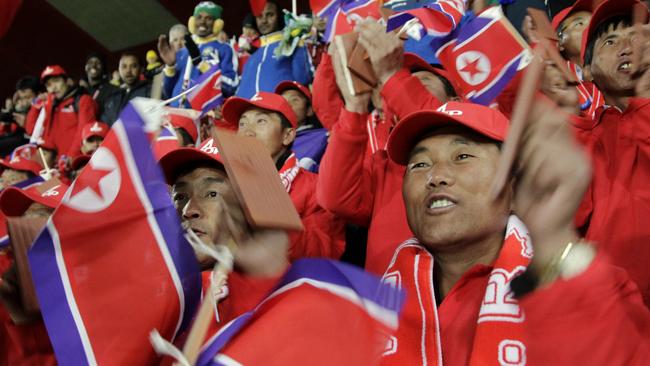
Asian Cup
Don't miss out on the headlines from Asian Cup. Followed categories will be added to My News.
IF the North Korean team falls in Melbourne, but nobody back home could watch it, did it really happen at all?
The answer, for the country’s near 25 million people, is most probably no.
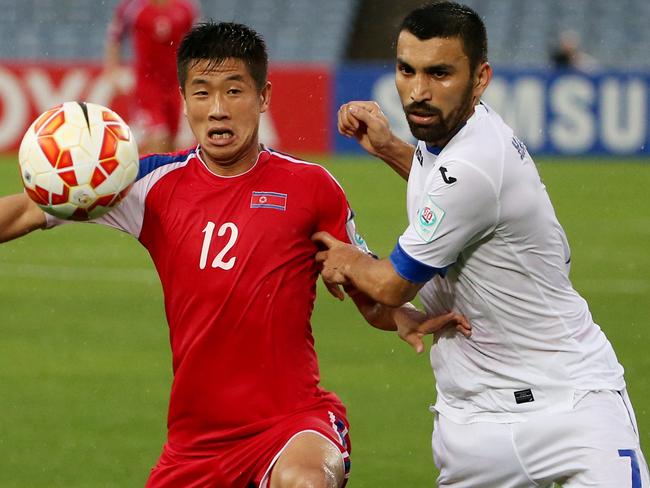
There will be no live broadcast of Wednesday’s Group B Asian Cup clash with Saudi Arabia at AAMI Park in North Korea, nor is there likely to be a replay on the country’s tightly-controlled television stations either.
Doing so would be to flirt with danger for the Kim Jong-un led communist regime of the world’s most secretive and isolated nation.
A live broadcast of a national team match played outside North Korea would open the possibility of protests in the stands against the country’s human rights atrocities — which according to a February 2014 UN Commission of Inquiry report includes prison camps, starvation and systematic torture — being beamed uncensored in to the country.
Live broadcasts also expose North Korea to potential embarrassment, as was the case at the 2010 World Cup.
After a commendable 2-1 loss to powerhouse Brazil in their first group game, which was broadcast back to North Korea on a 12-hour delay, the regime then led by Kim Jong-il, who died in 2011, allowed Chollima’s next match to be shown live.
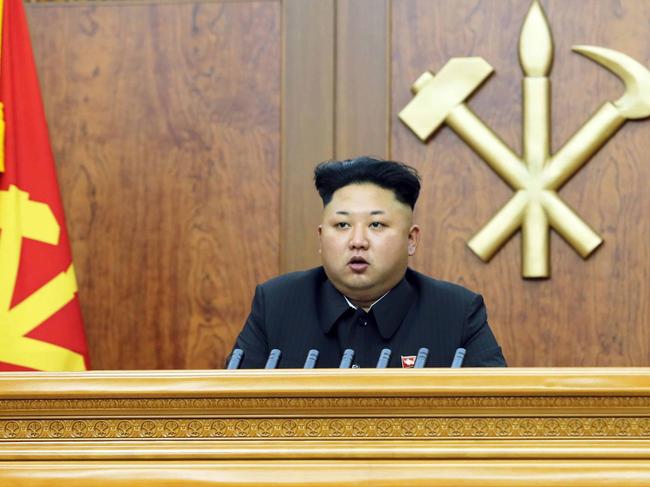
This was the first time a game played on foreign soil had been seen live on North Korean television and possibly the last, at least in a long time, as North Korea lost 7-0 to a Cristiano Ronaldo-inspired Portugal.
The result, coupled with a subsequent 3-0 loss to the Ivory Coast, saw the North Korean players publicly shamed in a six-hour inquiry on their return home, while coach Kim Jong-hun was accused of “betraying” the country’s leadership and was reportedly expelled from the Workers’ Party of Korea and forced to become a builder.
It capped off a bizarre World Cup for the country, its second, after 300-odd fans were carefully chosen by the government to go to South Africa to cheer on the team - albeit choreographed by a conductor - while another 1000 or so volunteers from China were hired to attend, dress in red and blue and “support their communist cousins”.
Charles Darwin University lecturer Nathan Franklin said North Korea had always been willing participants at, or at least trying to qualify for, international football tournaments.
Sometimes it goes too far in trying to get in, like when it was banned from the 2007 Asian Cup after denying the Jordan team entry in to the country for a qualifying match because they supposedly had incorrect visas.
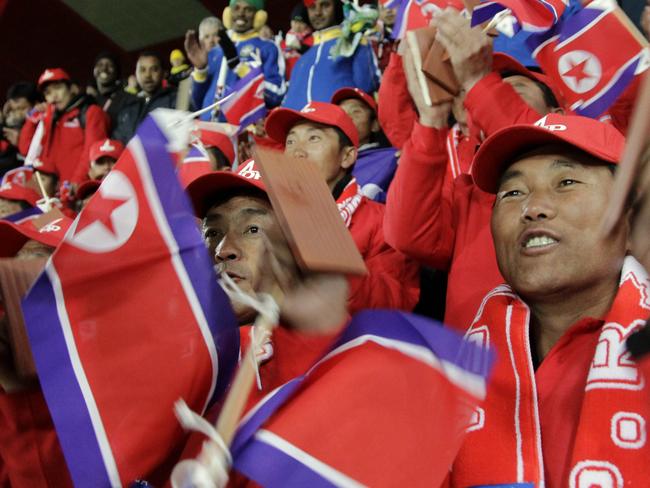
Sometimes it goes too far in trying to win, as was the case when five members of their women’s team tested positive for steroid use at the 2011 World Cup - although the country said the drugs were given to the players as medical treatment after they had been affected by a lightning strike.
But Franklin said, for the most part, sporting events involving North Korea had passed without incident.
And football, he said, is a chance for the country to show itself off on an international stage.
“I think they put a lot of effort in,” Franklin said.
“You’ve got to remember that this is a showcase team, so they would have the best access to the best facilities, food. Without doubt they would be looked after.
“Sports is one of the least political things you can have. You come to a field and, largely, it doesn’t matter what the economic circumstances are for each country, it’s a level playing field, the same rules.
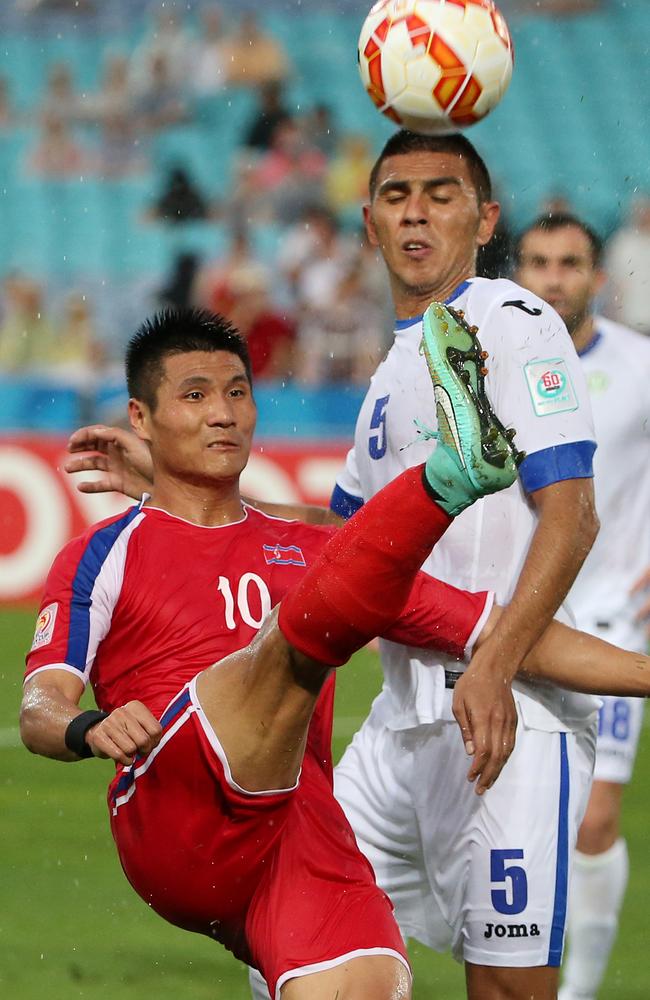
“So for North Korea this is one of the least problematic ways of connecting with the outside world.
“And I actually think they like soccer. It’s a sport that most developing and poor nations play, all they need is a ball and two makeshift goals on a dirt patch or bare field, so it doesn’t require a lot of equipment or preparation.”
The North’s preparations for this month’s Asian Cup haven’t been without curiosities either.
The team has had no friendly matches since November, only travelled with a 22-man squad rather than the 23 named by all 15 other teams and before arriving in Australia did not notify Asian Cup officials where in Sydney they would be staying and training.
Only four players who play for clubs outside of North Korea have been named, including FC Basel striker Pak Kwang-ryong, who in 2012 caused national controversy when he appeared alongside teammate Park Joo-ho, a South Korean, in a photo and interview for an ESPN website.
But their most famous player, Jong Tae-se, was not selected.
In 2013 the striker became the fourth North Korean to sign for a South Korean club when he joined the Suwon Bluewings, but the South’s controversial National Security Law - the two countries have technically remained at war since 1953 because a formal peace treaty to end the Korean War was never signed - makes it hard for contact to take place between the player and his national team.
Head coach Yun Jong-su is in Australia, however, despite being banned by the Asian Football Confederation for a year for abusing match officials.
Jo Tong-sop has been installed as head coach for the tournament, but Jong-su has still been allowed to register as a team official.
Unsurprisingly, public appearances by the team in Australia have been limited to official pre and post-match press conferences.
And asked what success at this tournament would mean, goalkeeper Ri Myong-guk said last week: “Winning this tournament would give pleasure to our Dear Leader Kim Jong-un.”
Franklin also notes the refreshingly young feel of the North Korean squad, with 15 of the 22 man squad aged 24 and under, which may have something to do with its Dear Leader.
“I don’t know what the rationale is, it might have something to do with Kim Jong-un saying ‘let’s give some of the younger players a go’, but it’s very noticeable that a lot of the players in the squad are quite new and they’re quite young,” he said.
“Kim Jong-un is the first leader that we actually know has some sort of interest in sports.
“His father, Kim Jong-il, was in to movies and his grandfather (Kim Il-sung) was a politician who was a communist insurgent trained by the Russians and backed by the Soviet Union and China for the first 40-odd years of the regime.
“He’s a bit different, he actually makes speeches, he’s a bit more visible and for him to be seen with (former NBA star) Dennis Rodman on his visit to the country - this basketball diplomacy or whatever they call it - is amazing.
“Without knowing his interest in soccer, I actually think as a general rule he’s got the most interest in sport of any of the previous North Korean leaders.
“I can’t see it being a problem for him.”
Originally published as Asian Cup 2015: North Korea’s progress in Australia sure to be kept quiet back home

